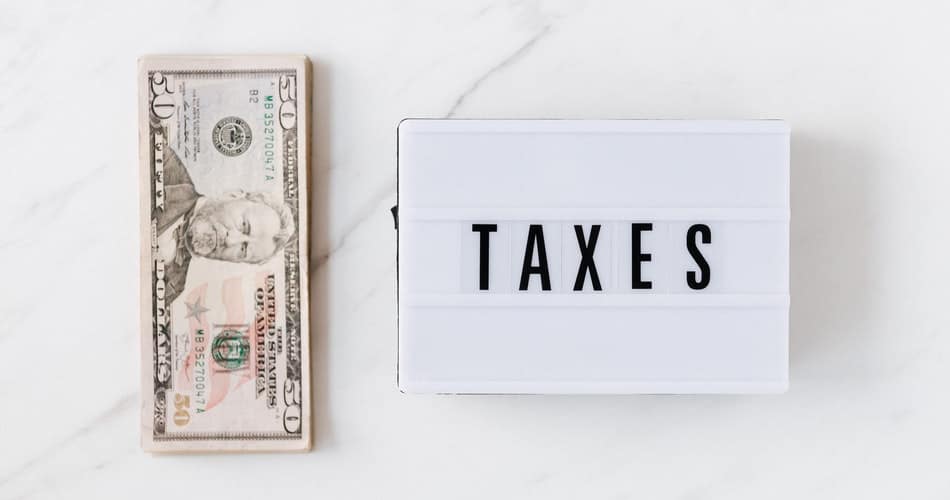In August 2020, former President Donald Trump issued an Executive Memorandum called the payroll tax holiday. It was designed to provide financial relief to employees making less than 4,000 dollars biweekly or 104,000 dollars annually amid the coronavirus pandemic.
Let’s find out why the payroll tax holiday is a deferral and what the long-term ramifications are.
What are Payroll Taxes?
Payroll taxes are all the taxes levied by the state and federal government bodies on both employers and employees. It usually includes taxes deducted from paychecks by employees and the taxes paid by employers based on their income. These taxes include:
- Social Security Tax
- Federal and State Income Tax
- Federal & State Unemployment Tax
- Medicare Tax
The federal payroll tax rates are decided and levied across the nation, whereas state payroll tax rates differ by state. The federal income tax rates are gradual and increase in stages based on the total income.
As the overall income of the people increases, they move to a different tax bracket with higher tax rates. For Social Security tax rates, it is paid according to the set percentage of the total income but to a limit. Lastly, the Medicare tax is a flat percentage of all earnings.
What is a Payroll Tax Holiday?
On August 8, 2020, former President Donald Trump issued an executive order to create a payroll tax holiday. This allowed people to defer employee payroll taxes without sustaining any penalties or fees.
The only tax affected by the executive order is the Social Security tax, and the tax rate for it is 12.4%. However, the Social Security tax is split between the employer and the employee, so effectively, employees only get a 6.2% benefit. Also, the employees that benefit from the payroll tax holiday are those whose biweekly income is below $4,000.
Do All Employers Have to Apply for a Payroll Tax Holiday?
The answer is that it depends.
All federal government employees are eligible for payroll tax holidays. But for the private sector, it’s an optional program. It’s entirely up to your employer and is not required by law. You can enjoy the benefits of the program if your employer or organization chooses to join the program.
But under no circumstances is the payroll tax holiday a right.
On the other hand, if the business is participating, the program will likely be in effect for all employees or for those who chose it on an individual basis.

Why Would an Organization Not Participate in the Payroll Tax Holiday?
If your organization does not participate in the program, it’s likely due to the following reasons:
It isn’t a “Holiday” it’s a Deferral
The payroll tax holiday program allows employees to defer only on Social Security. Since most employees are likely to stick to the organization they currently work for, they will have to pay those deferred taxes in 2021. To put it in simple words, the paychecks of the employees will be considerably smaller than usual, which will lead to more financial instability for the employees and no benefits.
Complicates the Payroll Process Unnecessarily
While most employees are likely to stay with the organization, there is no denying that some may leave. Even when employees leave your organization, the deferred taxes are still owed and must be paid to the U.S. Treasury. This means that the organization has to pay for the deferred amount according to the payroll tax holiday program. Many businesses are not doing well during the pandemic, and there is a possibility that they may have to downsize their workforce. Adding employee exits to the mix, it’s just too big of a risk for organizations.
Is the Payroll Tax Holiday Worth Taking?
I am sure the thought crossed your mind, “ Let’s enroll for the payroll tax holiday and see if the federal government forgives the debt.”
Well, it’s not that simple. Payroll, especially on an undertaking like this, has an enormous amount of administrative burden. A lot of notifications must be sent out, as well as numerous accounts set up and individual pre and post-tax calculations done for each participant who wants to opt for the program.
A lot of organizations chose not to opt for this program.
Employee Payroll Tax Holiday: The Effects
While most private companies will most probably implement the payroll tax holiday, the employees that fall in the low-income bracket will be the most severely hit group. They will suffer a massive financial burden as the deferred taxes have to be paid back to the federal government. If the employee earns the maximum eligible amount, they might be able to overcome the financial burden of paying back the deferred tax amount, but the same cannot be said for those that earn $30,000 or less annually. The burden of paying back the taxes can lead to massive financial instability.
The Biden Administration has yet to make a public statement on the repayment process for the deferred payroll tax that he will inherit from President Donald Trump. The most favorable options include:
- Prolonging the deferred payroll tax repayment period so that there is less impact on people that earn less than $4,000
- Forgiving the deferred payroll taxes completely
However, if the decision of forgiving the deferred taxes is put into motion, it will be unfair to those whose taxes are being withheld. Additionally, it could also lead to destabilizing Social Security by reducing the amount that is allocated to its funding.
Another potential issue for those that have deferred taxes is that they might just get slammed with more taxes, especially those that earn less than $4,000 biweekly. If these employees are participants of the payroll tax relief, they might just take a surplus of $496 per month in their paychecks for four months. This may put them in a higher tax bracket, which would result in them paying more taxes. Every dollar you earn that surpasses the lower tax bracket will be taxed higher.

How to Survive the Payroll Tax Holiday?
Here are some tips to overcome the potential financial instability due to reduced paychecks in 2021.
Analyze the Impact
2020 has been unprecedented, and people are now trying to seek their normal way of life. The payroll tax holiday was another surprise that people didn’t know what to do about or how to solve its aftermath.
The first thing that you need to do is to get a precise estimate of how much your paycheck will be affected. Start by reducing your last paycheck in December by 8%. This accounts for the 2% payback and the 6.2% payroll tax break. Employees that are serving will suffer a lesser financial burden as they will receive a 3% increase in their paychecks in 2021.
Nonetheless, 8% should help you create a steady cash flow to support yourself and your family. Assuming you will be making payments totaling the amount owed each month over the next 12 months.
Save Some Money
Many employees, especially those that work for the government, will witness an increase in their paychecks. If you don’t have the necessary expenses and can spare the cash, consider saving it for the coming months. Your paycheck will be reduced in 2021, and you can use the excess that you are saving during this time to ease the financial burden of the payroll holiday. While the idea of saving some money is not something out-of-the-box, keeping your expenses in check and setting aside money can be really helpful in difficult times.
Re-Evaluate your Expenditures
The coronavirus pandemic has already destabilized the finances of many. While many employees have already kept a keen eye on their expenses and changed their spending habits, the payroll tax was yet another surprise that no one knew what to make of. Although people were relieved at first knowing they could defer taxes, they got confused upon understanding the implications.
They will get financial relief, but they have to pay it back this year. This means an additional annoyance to your financial dilemma. In such cases, it’s best to re-evaluate your expenses and limit those that aren’t necessary. Look for expenses that you can cut back on. Stop services that aren’t necessary, put a hold on spending habits and purchases that you can avoid. It might make you analyze all your expenses, but it’s definitely worth the effort. You don’t necessarily have to put a stop to all expenses other than those that fulfill your basic needs. Start small, for example, a subscription to a streaming platform, and then find similar expenses.
Find Ways to Boost Income
Last year shook many families financially, but it also led them to find new ways to support their expenses. Putting effort into finding side jobs can be the key element to restoring your finances and attaining stability. Making some extra cash from your hobby, contract work, selling stuff, or running a side business from home can help you overcome the financial instability caused by the taxes taken out of your paychecks.
Reach Out for Financial Aid
Hoping that it doesn’t come to this, but if you are in a really tight spot, ask for financial aid. Various organizations such as the Navy-Marine Corps Relief, Army Emergency Relief, We Care for America, and more, are always on standby to help those that struggle to get by daily.
Changing Jobs Could Lead to Severe Implications
While government employees have to defer on their taxes, it’s optional for private organizations. But if you have deferred on taxes, it’s best to put a hold on the idea of changing jobs for a while. Doing so could potentially result in a highly deduced paycheck or some form of unwanted surprise from a previous employer. Make sure to check with the employer about the implications that you would face on doing so.
Do Employees Have a Say in the Implementation of Payroll Tax Holiday?
Well, whether they have a say in it or not totally depends on the business.
Federal Employees
If you work for the government, then you don’t have a choice. All federal and government employees will automatically receive a payroll tax holiday. You will witness an increase in your paychecks due to the deferred taxes for four months. You will have to pay those bases in the upcoming months in 2021.
Private Employees
As for private employees, their say in the matter totally depends on the way their employer approaches the payroll tax deferral. If your employer is not interested in the program, then it’s unlikely that they would implement it as the mandate is optional for the private sector. But there are employers that have implemented the payroll deferral program. Also, some employers have even asked for the opinions of their employees on the matter. In such cases, the decision is based on a majority vote. If the employees want to leverage the deferred tax holiday, then they need a majority vote and vice-versa.
What’s Next for the Payroll Tax Holiday?
While the employees that have deferred tax will enjoy a surplus in income till December, they need to know that they will have to pay it back eventually. This means that they will see a significant decline in their income in 2021. While the relief does sound good. It may be devastating to those with low income in the under $4,000 dollar mark. They could witness a massive financial burden.
Rather than relief, think of it as a no-interest loan that employees are borrowing from the government. Employees will have to pay it back in full.



